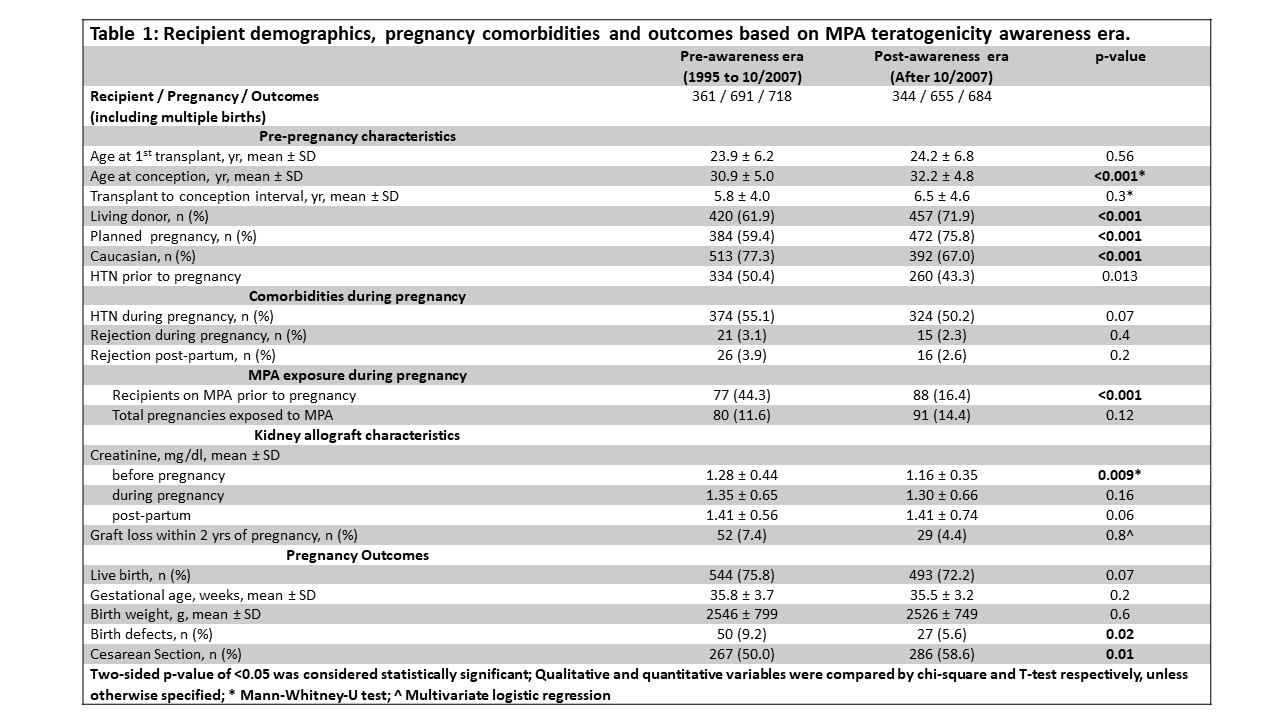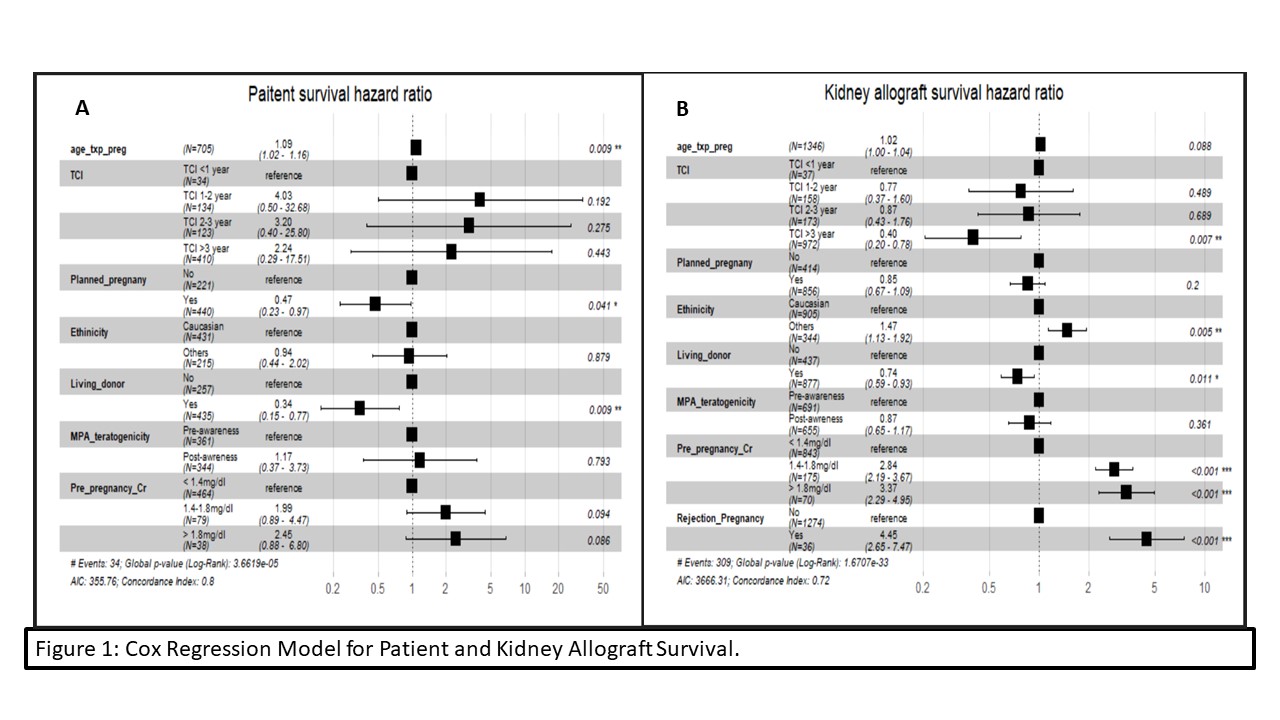Awareness of Teratogenic Potential of Mycophenolic Acid Products and Pregnancy Outcomes in Kidney Transplant Recipients
1Nephrology, University of Virginia Heath System, Charlottesville, VA, 2Transplant Pregnancy Registry International, Philadelphia, PA, 3Medicine, Lewis Katz School of Medicine at Temple University, Philadelphia, PA, 4Surgery, Lehigh Valley Health Network, Allentown, PA
Meeting: 2021 American Transplant Congress
Abstract number: 954
Keywords: Kidney transplantation, Pregnancy, Quality of life
Topic: Clinical Science » Kidney » Kidney Living Donor: Long Term Outcomes
Session Information
Session Name: Kidney Living Donor: Long Term Outcomes
Session Type: Poster Abstract
Session Date & Time: None. Available on demand.
Location: Virtual
*Purpose: In 2006, Transplant Pregnancy Registry International (TPRI) reported teratogenic effects of mycophenolic acid products (MPA) in pregnancies in transplant recipients. This resulted in black box warning for MPA products by the FDA for the pregnancy risk category in 10/2007, and awareness in the transplant community of pregnancy risks associated with MPA products. We aim to analyze the impact of MPA teratogenicity awareness on pregnancy outcome and patient and graft survival in kidney recipients.
*Methods: The TPRI dataset was queried for pregnancies in kidney transplant recipients from 1995 to 2019. The data were collected via questionnaires, telephone interviews, and medical records review. Pregnancies were grouped into pre-awareness (1995-10/2007) and post-awareness (after 10/2007) of MPA teratogenicity.
*Results: The pre-awareness group included 361 recipients, 691 pregnancies, and 718 outcomes was compared with the post-awareness group (344 recipients, 655 pregnancies, and 684 outcomes). Demographics are listed in Table 1. Among recipients taking MPA prior to pregnancy (457), there was significantly less MPA exposure during pregnancy in the post-awareness era (16% vs 44% in the pre-awareness era, p <0.001). Post-awareness era has higher planned pregnancies (75% vs 59%, p<0.001). Rejection during and after pregnancy were infrequent and similar in both groups. In both eras 74% of pregnancies resulted in live births, with high rates of prematurity (48%) and low birthweight (43%). The patient and kidney allograft survival were not independently related to the era of MPA teratogenicity awareness (Figure 1) and neither was graft loss within 2 years of delivery.
*Conclusions: The increased awareness amongst the transplant community of MPA teratogenicity has resulted in higher proportion of planned pregnancies and fewer MPA exposures during pregnancy. MPA avoidance during pregnancy did not have negative impact on patient and kidney allograft survival.
To cite this abstract in AMA style:
Rao S, Coscia L, Yusuf A, Constantinescu S, Moritz MJ. Awareness of Teratogenic Potential of Mycophenolic Acid Products and Pregnancy Outcomes in Kidney Transplant Recipients [abstract]. Am J Transplant. 2021; 21 (suppl 3). https://atcmeetingabstracts.com/abstract/awareness-of-teratogenic-potential-of-mycophenolic-acid-products-and-pregnancy-outcomes-in-kidney-transplant-recipients/. Accessed February 28, 2026.« Back to 2021 American Transplant Congress


